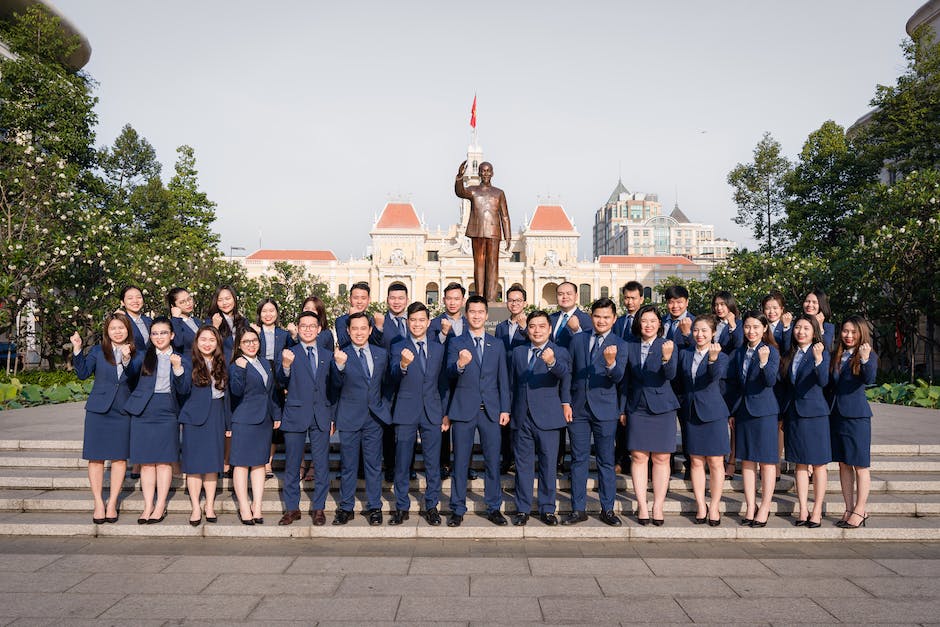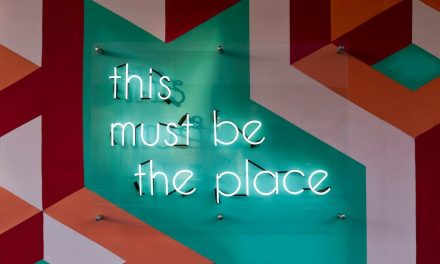Table of Contents
“Bridging Generations: The Hilton Hotels Succession Plan – Uniting Experience and Innovation for a Timeless Legacy.”
Introduction
Bridging Generations: The Hilton Hotels Succession Plan is a comprehensive strategy implemented by Hilton Hotels to ensure a smooth transition of leadership and maintain the company’s success across different generations. This plan focuses on effectively transferring knowledge, skills, and values from one generation to another, fostering collaboration and innovation, and preparing future leaders to navigate the evolving hospitality industry. By bridging the gap between generations, Hilton Hotels aims to sustain its legacy and continue delivering exceptional experiences to its guests.
The Importance of Succession Planning in Hilton Hotels

The Importance of Succession Planning in Hilton Hotels
Succession planning is a critical aspect of any organization’s long-term success, and Hilton Hotels is no exception. As one of the largest and most renowned hotel chains in the world, Hilton understands the significance of having a well-thought-out succession plan in place. This article will delve into the reasons why succession planning is crucial for Hilton Hotels and how it helps bridge the gap between generations.
First and foremost, succession planning ensures a smooth transition of leadership within the organization. As the hospitality industry continues to evolve, it is essential for Hilton to have a pipeline of talented individuals ready to step into key roles. By identifying and developing high-potential employees, Hilton can ensure that there is a seamless transfer of knowledge and expertise from one generation to the next.
Moreover, succession planning helps Hilton Hotels retain top talent. Employees are more likely to stay with an organization that invests in their professional growth and development. By providing clear career paths and opportunities for advancement, Hilton can attract and retain the best and brightest individuals in the industry. This not only benefits the organization but also creates a positive work environment where employees feel valued and motivated to excel.
Succession planning also mitigates the risks associated with unexpected departures or retirements. In an industry as dynamic as hospitality, it is not uncommon for key executives to leave or retire without much notice. Without a succession plan in place, Hilton would be left scrambling to fill these critical positions, potentially leading to disruptions in operations and a loss of momentum. By proactively identifying and grooming potential successors, Hilton can minimize these risks and ensure a smooth transition during times of leadership change.
Furthermore, succession planning fosters diversity and inclusion within Hilton Hotels. By actively seeking out individuals from different backgrounds and experiences, Hilton can create a leadership team that reflects the diverse needs and preferences of its global customer base. This not only enhances the organization’s ability to adapt to changing market trends but also promotes a culture of inclusivity and equality.
In addition to these benefits, succession planning also helps Hilton Hotels build a strong employer brand. A well-executed succession plan demonstrates to current and prospective employees that Hilton is committed to their professional growth and development. This can attract top talent and position Hilton as an employer of choice within the industry. Moreover, a robust succession plan can also enhance Hilton’s reputation among investors and stakeholders, as it showcases the organization’s long-term vision and strategic planning capabilities.
In conclusion, succession planning plays a vital role in Hilton Hotels’ long-term success. By ensuring a smooth transition of leadership, retaining top talent, mitigating risks, fostering diversity and inclusion, and building a strong employer brand, Hilton can bridge the gap between generations and position itself as a leader in the hospitality industry. As the world continues to change, Hilton’s commitment to succession planning will be crucial in navigating the challenges and opportunities that lie ahead.
Strategies for Bridging Generational Gaps in the Workplace
Bridging Generations: The Hilton Hotels Succession Plan
In today’s workplace, it is not uncommon to find multiple generations working side by side. With the baby boomers reaching retirement age and Generation Z entering the workforce, organizations are faced with the challenge of managing a diverse workforce with varying needs and expectations. One company that has successfully navigated this challenge is Hilton Hotels, which has implemented a comprehensive succession plan to bridge the generational gaps in their workforce.
Hilton Hotels recognizes the importance of succession planning in ensuring a smooth transition of leadership and maintaining organizational stability. They understand that each generation brings unique skills, perspectives, and experiences to the table, and that harnessing the strengths of each generation is key to their success. To bridge the generational gaps in their workforce, Hilton Hotels has implemented several strategies.
First and foremost, Hilton Hotels has created a culture of inclusivity and respect. They understand that each generation has its own values and work styles, and they encourage open dialogue and collaboration among employees of all ages. By fostering an environment where everyone’s voice is heard and respected, Hilton Hotels has created a workplace where generational differences are seen as an asset rather than a liability.
Another strategy Hilton Hotels has employed is mentorship programs. They understand that younger employees can benefit from the wisdom and experience of their older counterparts, while older employees can learn from the fresh perspectives and technological savvy of the younger generation. By pairing employees from different generations in mentorship relationships, Hilton Hotels has created opportunities for knowledge sharing and professional development.
In addition to mentorship programs, Hilton Hotels has also implemented reverse mentoring. This involves pairing younger employees with senior executives to provide insights into emerging trends and technologies. By embracing reverse mentoring, Hilton Hotels has been able to stay ahead of the curve and adapt to the changing needs of their customers.
Furthermore, Hilton Hotels has invested in training and development programs that cater to the specific needs of each generation. They understand that different generations have different learning styles and preferences, and they have tailored their training programs accordingly. By providing training opportunities that are engaging and relevant to each generation, Hilton Hotels has ensured that all employees have the skills and knowledge they need to succeed.
Lastly, Hilton Hotels has embraced technology as a means of bridging the generational gaps in their workforce. They have implemented digital platforms and tools that facilitate communication and collaboration among employees of all ages. By leveraging technology, Hilton Hotels has created a virtual workspace where employees can connect and work together regardless of their location or generation.
In conclusion, Hilton Hotels has successfully bridged the generational gaps in their workforce through a comprehensive succession plan. By creating a culture of inclusivity and respect, implementing mentorship programs, embracing reverse mentoring, tailoring training programs to each generation, and leveraging technology, Hilton Hotels has harnessed the strengths of each generation and created a workplace where employees of all ages can thrive. Other organizations can learn from Hilton Hotels’ success and implement similar strategies to bridge the generational gaps in their own workforce. By doing so, they can create a diverse and inclusive workplace that is poised for long-term success.
How Hilton Hotels Promotes Collaboration and Knowledge Sharing Across Generations
Bridging Generations: The Hilton Hotels Succession Plan
In today’s rapidly changing business landscape, organizations are faced with the challenge of managing a multigenerational workforce. With employees from different generations, each with their own unique perspectives, experiences, and skills, it is crucial for companies to find ways to promote collaboration and knowledge sharing across generations. Hilton Hotels, a global hospitality company, has implemented a comprehensive succession plan that effectively bridges the gap between generations and ensures a smooth transition of leadership.
One of the key strategies that Hilton Hotels employs to promote collaboration across generations is mentorship programs. These programs pair experienced senior leaders with younger employees, allowing them to learn from each other and share their knowledge and expertise. Through mentorship, younger employees gain valuable insights and guidance from seasoned professionals, while senior leaders benefit from fresh perspectives and innovative ideas. This collaborative approach not only helps to transfer knowledge and skills but also fosters a sense of camaraderie and mutual respect between generations.
Another way Hilton Hotels promotes collaboration and knowledge sharing is through cross-generational team projects. By bringing together employees from different generations to work on a common goal, the company encourages the exchange of ideas and the blending of different perspectives. This not only enhances creativity and innovation but also helps to break down generational barriers and build stronger relationships among employees. By working together, employees from different generations can leverage their unique strengths and experiences to achieve better outcomes.
Hilton Hotels also recognizes the importance of creating a culture of continuous learning and development. The company offers a wide range of training and development programs that cater to the specific needs and preferences of employees from different generations. From traditional classroom-style training to online courses and virtual learning platforms, Hilton Hotels ensures that employees have access to the resources they need to enhance their skills and stay up-to-date with the latest industry trends. By investing in the professional growth of its employees, Hilton Hotels not only promotes collaboration but also creates a sense of loyalty and commitment among its workforce.
Furthermore, Hilton Hotels leverages technology to facilitate collaboration and knowledge sharing across generations. The company has implemented various digital platforms and tools that enable employees to connect, communicate, and share information seamlessly. From virtual meeting rooms to online collaboration spaces, these technological solutions break down geographical barriers and allow employees from different locations and generations to work together effectively. By embracing technology, Hilton Hotels ensures that knowledge and expertise are easily accessible and transferable, regardless of age or location.
In conclusion, Hilton Hotels’ succession plan is a testament to its commitment to bridging the gap between generations and promoting collaboration and knowledge sharing. Through mentorship programs, cross-generational team projects, continuous learning initiatives, and the use of technology, the company creates an environment where employees from different generations can thrive and contribute their unique perspectives and skills. By fostering collaboration and knowledge sharing, Hilton Hotels ensures a smooth transition of leadership and positions itself for continued success in the ever-evolving hospitality industry.
The Role of Mentoring and Coaching in Hilton Hotels’ Succession Plan
Bridging Generations: The Hilton Hotels Succession Plan
The Role of Mentoring and Coaching in Hilton Hotels’ Succession Plan
Succession planning is a critical aspect of any organization’s long-term success. It ensures that there is a smooth transition of leadership and a pipeline of talented individuals ready to step into key roles. Hilton Hotels, a global hospitality company, understands the importance of succession planning and has implemented a comprehensive program to develop and groom future leaders.
One key component of Hilton Hotels’ succession plan is mentoring and coaching. This approach recognizes the value of experience and wisdom that senior leaders can pass on to the next generation. Mentoring involves pairing a more experienced individual with a less experienced one, providing guidance, support, and advice. Coaching, on the other hand, focuses on developing specific skills and competencies through targeted training and feedback.
Mentoring and coaching play a crucial role in Hilton Hotels’ succession plan by fostering a culture of learning and development. By pairing senior leaders with emerging talent, the company ensures that knowledge and expertise are transferred from one generation to the next. This not only helps to bridge the gap between different age groups but also creates a sense of continuity and shared values within the organization.
Moreover, mentoring and coaching provide young professionals with valuable insights and perspectives that they may not have gained otherwise. Through regular interactions with senior leaders, they can learn from their experiences, gain industry knowledge, and develop a broader understanding of the business. This exposure to different viewpoints helps to shape their leadership style and prepares them for future challenges.
In addition to knowledge transfer, mentoring and coaching also contribute to the personal and professional growth of individuals. By receiving guidance and support from a mentor or coach, young professionals can identify their strengths and areas for improvement. They can set goals, receive feedback, and work on developing the necessary skills to succeed in their careers. This personalized approach to development ensures that individuals are equipped with the right tools and resources to take on leadership roles in the future.
Furthermore, mentoring and coaching create a sense of belonging and engagement among employees. When individuals feel supported and valued, they are more likely to be motivated and committed to their work. This, in turn, leads to higher levels of productivity and performance. By investing in the development of their employees, Hilton Hotels not only ensures a strong leadership pipeline but also cultivates a positive and inclusive work environment.
To ensure the effectiveness of their mentoring and coaching programs, Hilton Hotels follows a structured approach. They carefully select mentors and coaches based on their experience, expertise, and compatibility with the mentee or coachee. They also provide training and resources to mentors and coaches to enhance their skills and ensure consistency in the program. Regular check-ins and evaluations are conducted to monitor progress and make any necessary adjustments.
In conclusion, mentoring and coaching play a vital role in Hilton Hotels’ succession plan. By fostering a culture of learning and development, these programs bridge the gap between generations and ensure a smooth transition of leadership. They provide young professionals with valuable insights, personal growth opportunities, and a sense of belonging. With a structured approach and a commitment to investing in their employees, Hilton Hotels sets a strong foundation for future success.
Q&A
1. What is the Hilton Hotels succession plan?
The Hilton Hotels succession plan is a strategy implemented by the company to ensure a smooth transition of leadership from one generation to the next.
2. Why is the Hilton Hotels succession plan important?
The succession plan is important for Hilton Hotels as it helps maintain stability and continuity in leadership, ensuring the company’s long-term success.
3. How does the Hilton Hotels succession plan bridge generations?
The succession plan bridges generations by identifying and preparing potential successors from within the company, allowing for a seamless transition of leadership between different generations.
4. What are the benefits of the Hilton Hotels succession plan?
The benefits of the succession plan for Hilton Hotels include maintaining institutional knowledge, fostering innovation, and ensuring a strong leadership pipeline for future growth and development.
Conclusion
In conclusion, the Hilton Hotels succession plan is a strategic approach that aims to bridge generations within the company. By implementing a comprehensive plan, Hilton Hotels ensures a smooth transition of leadership from one generation to the next, while also leveraging the unique strengths and perspectives of each generation. This succession plan not only helps maintain the company’s success but also fosters a culture of innovation and adaptability. Overall, the Hilton Hotels succession plan is a key factor in the company’s continued growth and longevity.




